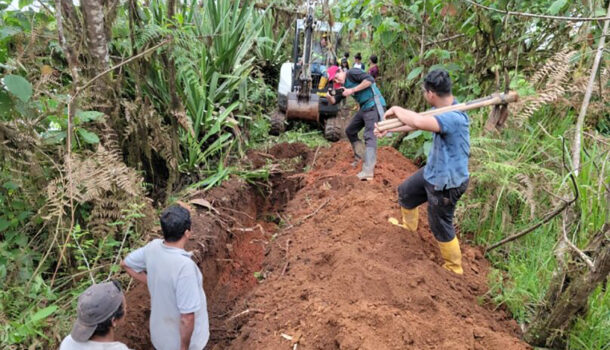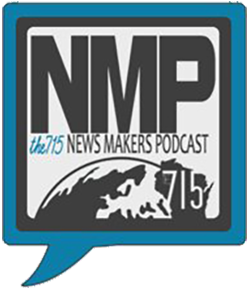Residents of a village in the Andes Mountains of Ecuador are looking forward to having — for the first time — clean water, thanks to the skills and efforts of determined engineering students at University of Wisconsin-Stout.
“The intention is that once we finish the project, we hope we’ll never have to touch it again. They can operate it completely on their own,”
– Jeremiah Hubbard
The students are members of the university’s Engineers Without Borders chapter. They designed a system that captures spring water and chlorinates it for safe consumption. Then, gravity transports it in buried pipes down the mountain to a pair of 5,000-liter holding tanks, where villagers will access it.
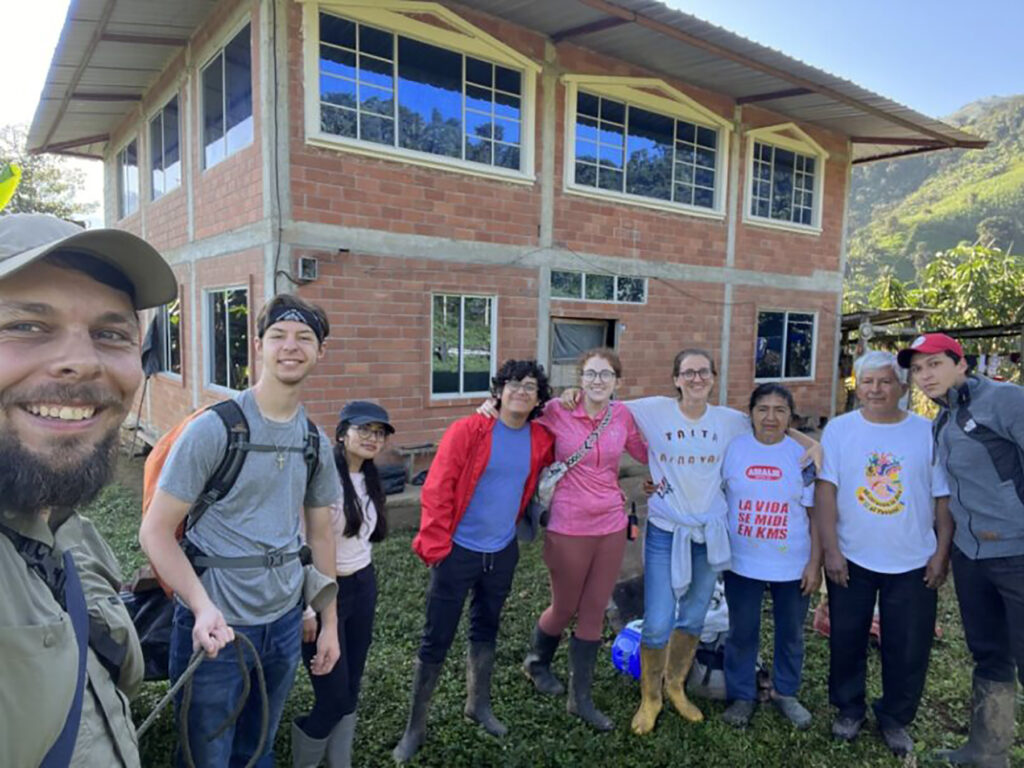
Three members of the chapter, Jeremiah Hubbard, Jack Lonn and Elana Showalter, visited the village, Naranjal, for 10 days last August and September to help the 100 residents begin installing the system. The villagers have continued to make progress and are close to completing Phase 1, a section highest on the mountain.
“We learned a lot about the process of engineering,” said Showalter, of Northfield, Minn., EWB chapter vice president who is majoring in mechanical engineering. “This isn’t guesswork. We know it will work because of our calculations.”
The system will improve residents’ lives by eliminating fears of E.coli and other water-borne illnesses. Currently, they use a system that isn’t chlorinated and requires them to boil water or travel to find clean spring water.
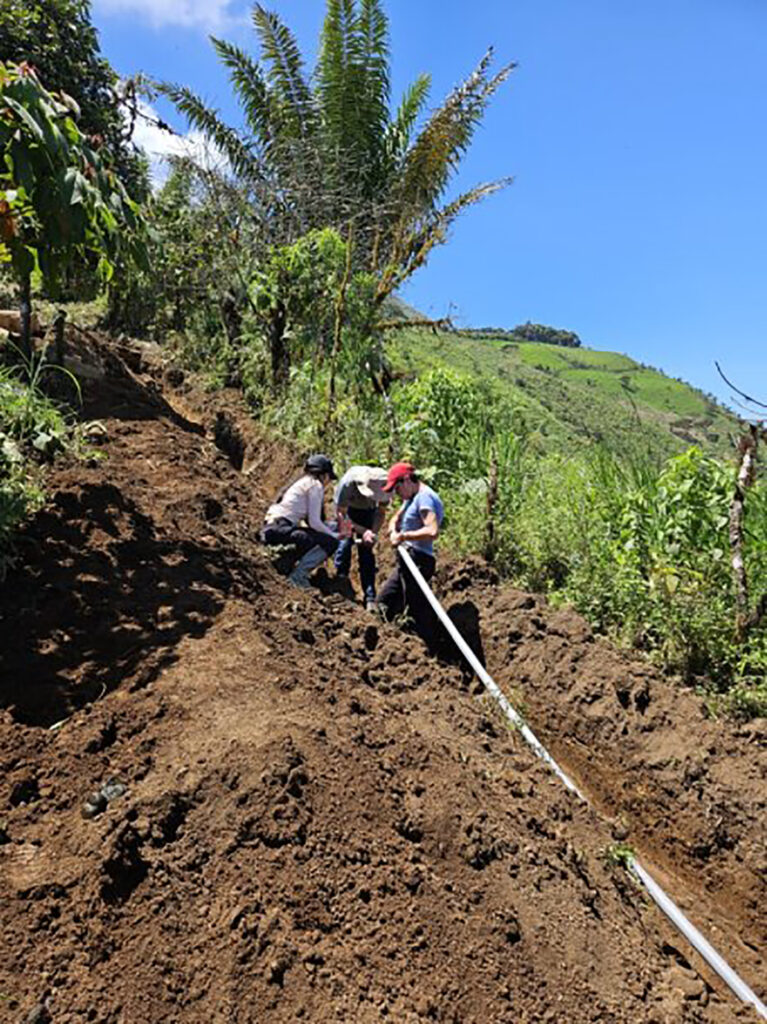
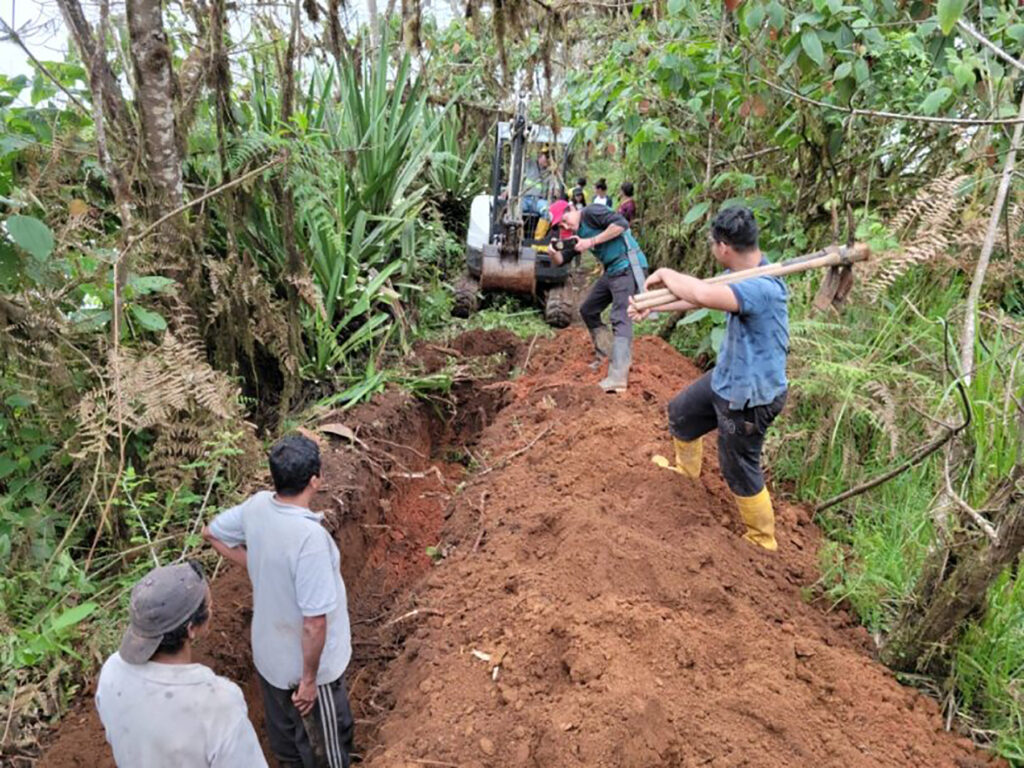
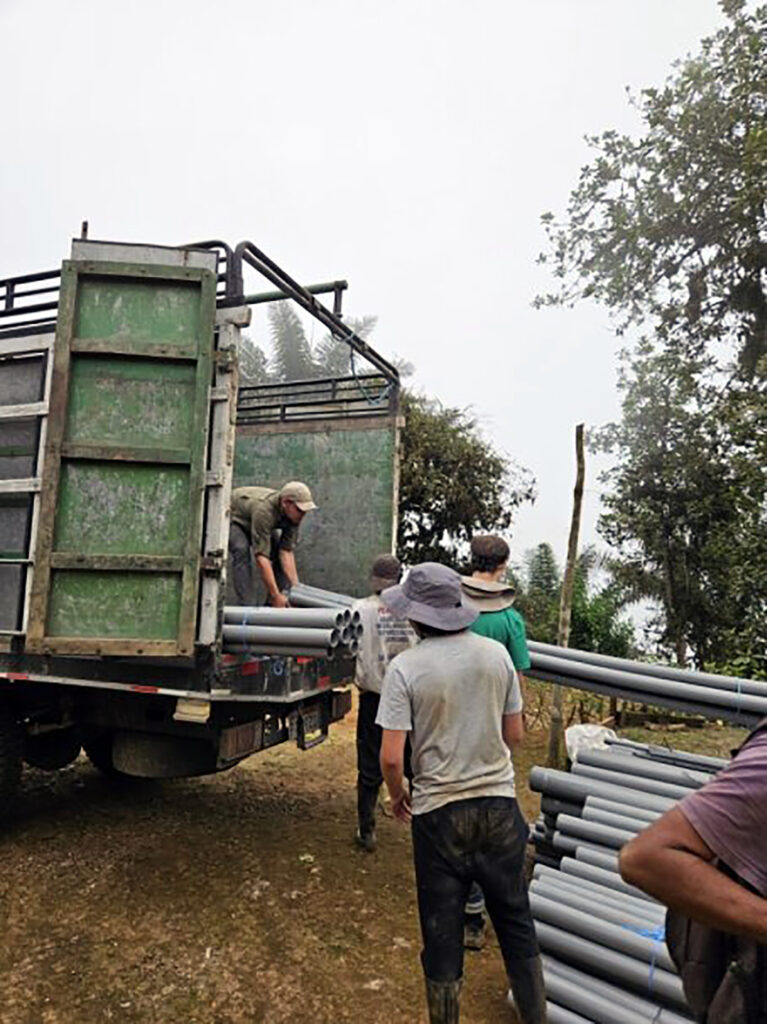
The new system also will capture and hold more water, be more accessible to residents who live over about a 2-mile area, and with larger holding tanks store water even during the dry season.
“The intention is that once we finish the project, we hope we’ll never have to touch it again. They can operate it completely on their own,” said Hubbard, of Hammond, the chapter president and also a mechanical engineering major. He is minoring in global perspectives in engineering.
About six-tenths of a mile of pipe was installed during the visit, with residents working independently on another three-tenths. Excavating equipment was brought in to dig trenches for the pipes.
The students plan to return to Naranjal in 2024 to begin Phase 2, farther down the mountain. Phase 2 would cover about another mile and bring holding tanks to more residents.
The approximately $17,000 project was paid for through fundraisers, EWB chapter funds and grants. Naranjal residents are covering about 5% of the cost. Students paid their own travel expenses, about $700 each. They are fundraising for their return trip. Donations can be made at the UW-Stout EWB student chapter website.
The students worked with EWB professional engineer advisers and Rachel Conrad, representative of an Ecuador NGO — nonprofit government organization. Conrad also acted as a translator, although Showalter also speaks Spanish and is pursuing a minor in it.


